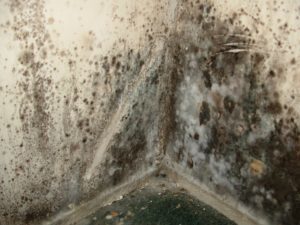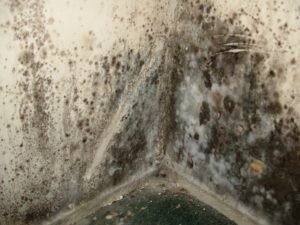Dangerous Wet Basements

Having a basement in your home can prove to be a valuable asset as it gives you more room to store stuff or live in, and also increases the resale value of your home; but did you know that if your basement is damp or leaks often that it can cause some pretty big problems? If not, don’t worry, we’re here to help. Today we’re going over what you need to keep an eye out for, why a leaky basement is a very bad thing, and what steps can be taken to correct this issue.
Leaky/damp or even moist basements aren’t all that uncommon unfortunately. A good chunk of older homes, and even some newer ones don’t have good waterproofing installed. Now this is bad, as unless you’ve got some good waterproofing in, you could be looking at all kinds of problems; such as your basement flooding every time you get some rain, the structural integrity of your home decreasing, or even mold and other bacteria that can cause some major health issues. Yes, a leaky basement can cause all that and more. Let’s take a look at your basement in a slightly different way, shall we? It’s a space beneath your home, and typically below ground level, with typically concrete walls surrounding it, and concrete floors. Since the earth shifts every so often (earth breathing, shrinking and expanding from cold/heat), and concrete is a very non-giving material, so when what’s supporting it shifts, it attempts to compensate. This can cause cracks, cracks for water to get in.
Now water all by itself isn’t a big deal, you can just shoot it back outside with a sump pump if you notice ridiculous amounts, but it’s the moisture in a dark, cool environment that can be concerning. You see, mold and fungi absolutely love this kind of environment and are quick to start growing. There are a lot of well-known molds (i.e. black mold) that many home owners know of, so we won’t get too far into this topic. To those who aren’t totally aware of mold and its risks, allow me a quick explanation. There are many types of mold that can grow in your home; some aren’t too big of a deal, and others are bad enough you’d want to call a hazmat team. Now each of these molds give off spores (like plant pollen, they’ve got to breed somehow), spores that then float around in the air like a pathogen, to be inhaled by someone. This can cause some health issues, such as feeling lethargic and congested, to vomiting and a hacking cough and fever. If you actually feel healthier at work, outside, or basically anywhere else that isn’t home, you may want to call a professional to come take a look.

Now we generally know what happens to wood when it gets wet; it warps and then rots. Now imagine that happening to those support beams under your floor, hiding in that damp leaky basement of yours. Gradually, you’ll see your floor shift and either balloon up or sink down. As water travels and wood absorbs moisture, the dampness in your basement has the potential to spread to the studs in your walls, the insulation in your floor and walls; the list goes on.
All of this mess over one little crack. By now you may be feeling overwhelmed and upset, wondering how you go about fixing this. In all honesty, your best bet is to get your basement waterproofed to either pre-emptively strike at the issue at hand, or to start the whole fixing process. That’s where things get a lot easier; if you notice you have a leaky basement, or think there’s moisture gathering in it, just call us to receive your free, non-obligatory quote. We’re here to help and want to make sure that your family and home are safe, healthy and dry. If you feel that you, or a family member may be experiencing illness related to mold exposure, please contact your doctor immediately; as if it isn’t caught and handled quickly and correctly, the person may suffer severe health problems later.
Now that we’ve got you thinking, we’ll leave you to check out that basement. Good luck!
